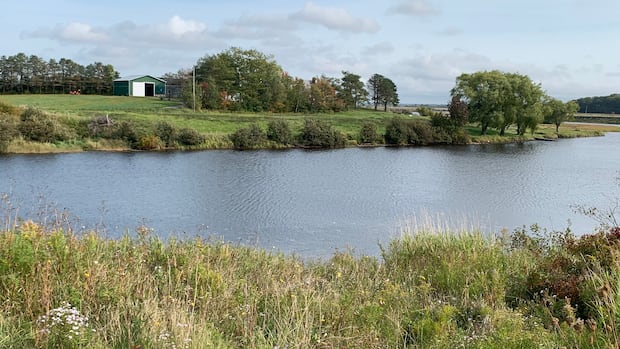Nova Scotia·NewWest Hants had a plan to deal with the effects of this summer’s drought. While it didn’t need it this year, the municipality is better prepared for future droughts.’Having this resource and this infrastructure in place … it’s invaluable,’ says municipal officialListen to this articleEstimated 2 minutesThe audio version of this article is generated by text-to-speech, a technology based on artificial intelligence.The plan was to pump water from the Avon River to a nearby watershed. (Paul Palmeter/CBC)West Hants didn’t need its contingency plan to deal with the effects of this summer’s drought, but it may come in handy for future droughts.Todd Richard, the director of public works for the municipality, says enough rain came to replenish the municipality’s main water source. The contingency plan was to pump water from the Avon River to the Mill Lakes watershed, the primary source of drinking water for Windsor, Three Mile Plains and Garlands Crossing.The municipality planned to connect Ski Martock’s water intake system and then create a discharge point in the watershed.Richard said the municipality invested $350,000 in a three-kilometre pipe and the materials and labour to implement it. While it wasn’t needed this year, it will remain in place for potential future droughts. He said Ski Martock is getting ready to make snow for the season, allowing for a trial run of the water system.”So, we are going to test it for probably just three or four hours and make sure everything works if needed in the future,” he said.Richard said the municipal water supply is “almost at the point where they’re back to normal levels,” though he says many residents that rely on wells are still recovering from the drought, which disrupted people’s day-to-day lives. “Having this resource and this infrastructure in place … it’s invaluable,” he said.Problem of salinity, tidesSalinity levels in the Avon River delayed the start of the project, Richard said.To mitigate that, the municipality asked Fisheries and Oceans Canada to authorize the Nova Scotia Department of Agriculture to close the gates of the Windsor aboiteau when there were incoming tides until January 1st, 2026, to avoid “possible intrusion of salt water.”The request says that this could “harmfully disrupt upstream and downstream fish passage at the Avon River aboiteau and likely result in the incidental death of fish.”DFO granted the authorization on Oct. 17.But a spokesperson for the Department of Agriculture said that due to precipitation, it continued to open the gates every tide cycle. MORE TOP STORIES ABOUT THE AUTHORGiuliana is a journalist originally from Lima, Peru. She is interested in stories about rural Nova Scotia, science, the environment and more. If you have any story tips, you can reach her at giuliana.grillo.de.lambarri@cbc.ca.
West Hants didn’t need its water contingency plan this year, but it is better prepared for future droughts











